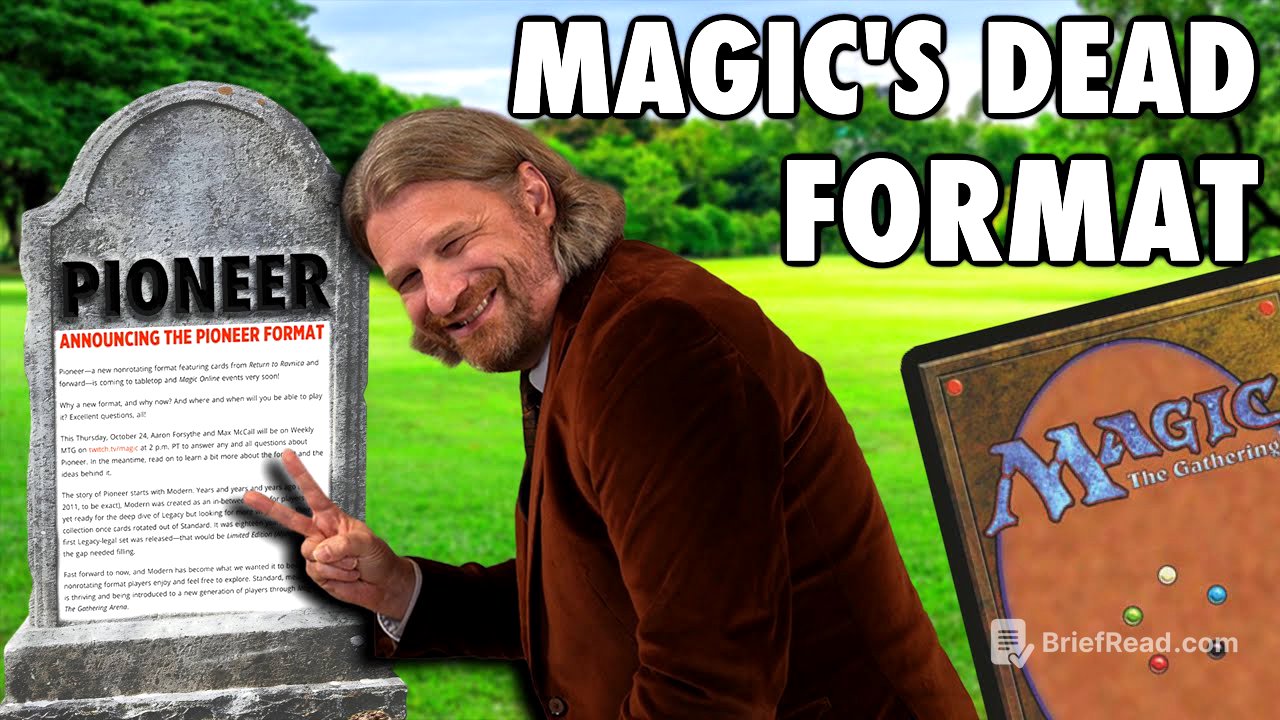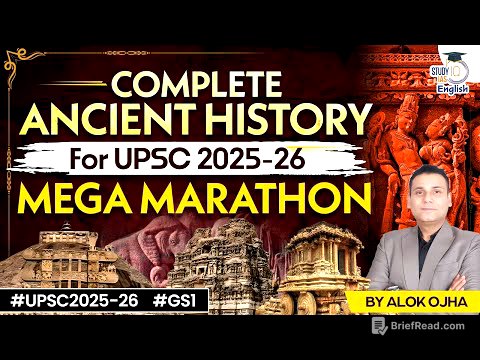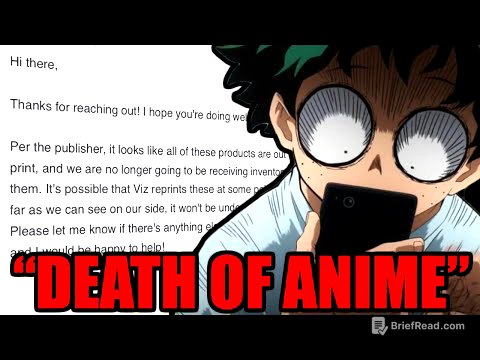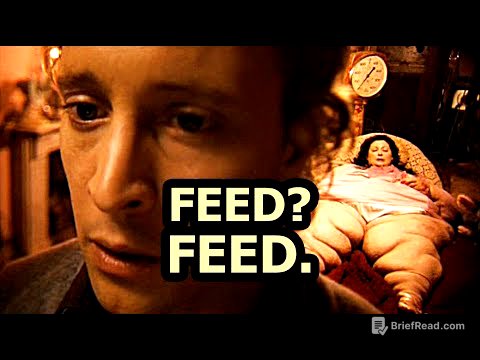TLDR;
This video discusses the perceived "death" of the Pioneer format in Magic: The Gathering due to the lack of organized play support from Wizards of the Coast. It explores the importance of competitive play in maintaining a format's health, the impact of the new standard set release cadence, and the potential future for Pioneer. The video concludes by asking viewers for their opinions on the format's future and promotes Architect, a deck-building website.
- Pioneer format is considered "dead" due to lack of organized play support.
- Competitive play is crucial for a format's health and innovation.
- The increased standard set release cadence impacts the viability of Pioneer.
- Pioneer's future depends on player-driven interest and demand for sanctioned events.
Introduction: The "Unaliving" of Pioneer [0:06]
The video starts by stating that the Pioneer format in Magic: The Gathering is considered "unalived" due to Wizards of the Coast's decision to exclude it from the 2026 organized play season for the second year in a row. This means no Pioneer Pro Tours, Regional Championships, or RCQs. The prevailing narrative is that the format has been neglected and is effectively dead in the competitive scene. The video aims to explore whether this is factually true, how important competitive play is, and what can be done to revive the format.
The Importance of Organized Play [4:22]
Organized play is critical to the health and stability of a 1v1 constructed format. While casual play and local game stores can sustain some interest, real metagame shifts and deck innovations typically originate at the professional level. Competitive Magic incentivizes players to find undiscovered strategies and refine existing archetypes. Examples include Team Channel Fireball's Ratosse Vampires deck and the evolution of Abzan Grease Fang, both of which emerged from high-stakes tournament preparation. These innovations then trickle down to local game stores and online platforms, driving format evolution.
The Impact of Neglect: Pioneer in 2025 [6:58]
The absence of high-level tournaments leads to stagnation in a format. The last major Pioneer tournaments were in the fall of 2024, which featured innovations like Ratos Prowess and black midrange decks with Unholy Annex. After Wizards of the Coast announced the 2025 schedule without Pioneer events, players worried about the format's future. A year later, the top decks in Pioneer remained largely unchanged, despite the introduction of six new sets. While some new decks like Boros Hammer Time, Simic Scapeshift, and Five-Color Legends emerged, their viability remains untested due to the lack of competitive pressure and exposure.
The Vicious Cycle of Disinterest [9:58]
Competitive play drives excitement and provides a reason for casual players to engage with a format. Pioneer RCQs generate local interest, inspiring players to buy and play new decks. Without these events, there is little incentive for players to invest in Pioneer, even if they find a cool new deck online. The lack of organized play creates a vicious cycle of disinterest, making it difficult for the format to thrive.
The Future of Pioneer: A Bleak Outlook [12:11]
If Wizards of the Coast includes Pioneer in the 2027 organized play schedule, the format could potentially recover, but it would require significant effort to reignite player interest. However, the video expresses skepticism about this possibility, suggesting that the increased standard set release cadence is the root problem. With seven standard sets per year, Wizards of the Coast prioritizes standard and modern to drive sales, leaving Pioneer in the dust.
The Oversaturation of Standard [14:02]
Pioneer was initially created to provide a home for standard cards after they rotated out, but the current state of standard undermines this purpose. With a three-year rotation and a high volume of set releases, standard's card pool is now nearly as large as Pioneer's was when the format was first introduced. This makes Pioneer less appealing, as many players may be tired of the cards by the time they rotate out of standard. Additionally, the increased set release cadence may be stretching Wizards of the Coast's play design team thin, leading to less attention for each format and a greater likelihood of broken cards and stale metagames.
Pioneer vs. Legacy: A Comparison [18:37]
Pioneer is not officially dead, but it is facing a similar fate to Legacy, which receives little attention from Wizards of the Coast. While Legacy has a dedicated player base due to its unique card pool (original dual lands, Force of Will, etc.), Pioneer lacks a distinct identity. It doesn't offer anything that can't be found in either Standard or Modern Horizons Modern.
Conclusion: A Call to Action [20:30]
The video concludes by emphasizing that Pioneer's future depends on player-driven interest. If players actively engage with the format on Arena, request sanctioned events from local game stores, and demonstrate a strong desire for Pioneer, there is a chance it could be revived. Otherwise, Pioneer may fade into obscurity like Paper Brawl. The video ends with a call for viewers to share their thoughts on the future of Pioneer and a promotion for Architect, a deck-building website.









